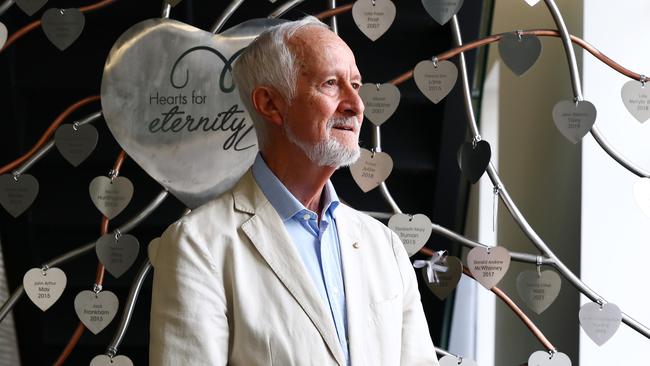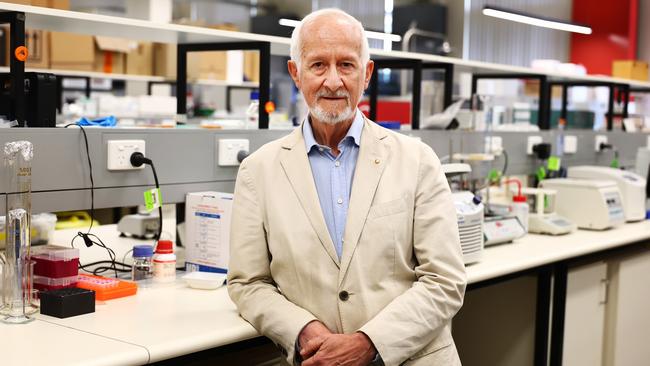A 30-second pulse check could prevent more strokes. So why don’t we do it?
It’s a deadly one-two. High blood pressure and atrial fibrillation greatly increase the risk of stroke, heart failure and dementia. Yet too often, despite a test that takes 30 seconds, AF is not detected by doctors.

It’s the lethal one-two that can hasten stroke, heart failure and dementia.
But while GPs routinely test for high blood pressure, they too often neglect the other killer punch, atrial fibrillation, even though it is detected with a simple, 30-second pulse check.
This is the warning from world-renowned Australian stroke researcher Ben Freedman, who says failing to understand this vital link may be putting the health of thousands of Australians at risk.
Freedman, from the Heart Research Institute but also with professorial credentials at Monash and Sydney universities, has co-authored a new paper shedding light on the little-understood link between hypertension (high blood pressure) and AF, a condition where the heart beats irregularly or rapidly.
Somewhat ironically, he has done so since recuperating from his own stroke, suffered 18 months ago.
The study, published in the prestigious American Heart Association journal Circulation, concludes that hypertension is not simply a common condition among AF patients, it actually contributes to the development of AF. The link is causal, not correlative, and about 70 per cent of people who have AF also have hypertension.

“Hypertension and atrial fibrillation are dangerous bedfellows – one leads to the other and together they significantly increase the risk of stroke, heart failure and dementia,” Freedman says.
“The combination of high blood pressure and AF is a ticking time bomb. A simple pulse check or an irregular heartbeat alert on a blood pressure monitor could mean the difference between early treatment and a life-altering stroke.”
Controlling high blood pressure early through the use of effective medications could significantly reduce the likelihood of AF developing, ultimately lowering the risk of serious heart and brain complications.
“We already know AF increases the risk of stroke by up to fivefold, but there’s also growing evidence linking it to dementia; this makes early detection even more critical,” Freedman says.
Atrial fibrillation is more common than people generally understand, he says.
“Once you’ve reached the age of 40 you have about a one in three lifetime chance of developing atrial fibrillation, but it comes on more frequently as you get older. So it’s not an uncommon condition,” he says.

But AF is often asymptomatic, particularly among older people, so it often is not detected until a health incident. This is despite the atrial fibrillation in older people being “persistent” rather than episodic, making it easier to detect.
“Asymptomatic AF is every bit as dangerous as when it’s more noisy and has symptoms like palpitations,” Freedman says. “It has the same stroke risk, the same rate of going into heart failure and the same sudden risk of mortality. So it’s not a benign problem, even if you don’t have any symptoms.”
Freedman is pushing to incorporate screening for AF into routine blood pressure checks, with a pulse check or the use of a handheld ECG device or blood pressure monitor that has an irregular heartbeat alert.
But why isn’t this already happening?
“GPs are very busy and there’s probably a bit of therapeutic inertia as well, which is where regular checks become a bit routine, and change of treatment to achieve better blood pressure control will require more activity and time,” Freedman says.
Of course nothing is certain in medicine or health, as Freedman knows well after having his own stroke 18 months ago.
He says his health incident was not really a case of good doctor, poor patient, and he had never had a problem with AF and only occasionally had slightly elevated blood pressure.
“But on the day of the stroke my blood pressure was 190, as measured by the ambulance people.
“I am glad I knew about the link between high blood pressure and haemorrhagic stroke, so I pushed for intravenous drugs to quickly get my blood pressure down to avoid further damage.”
Freedman says he feels “very lucky”, having initially lost his visual field to the left, but has since made a complete recovery and at 75 doesn’t plan to stop his research anytime soon.





To join the conversation, please log in. Don't have an account? Register
Join the conversation, you are commenting as Logout